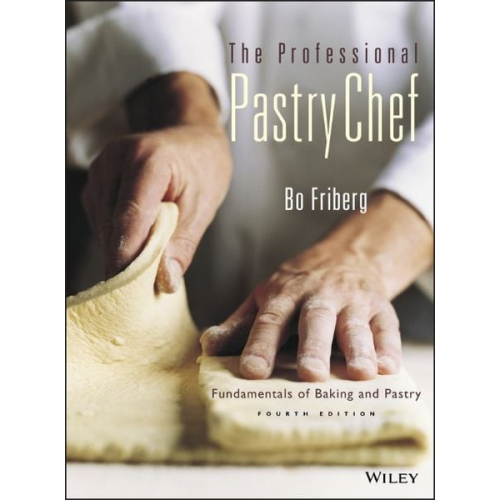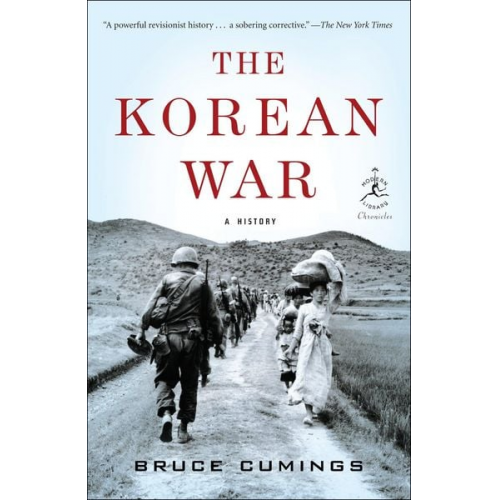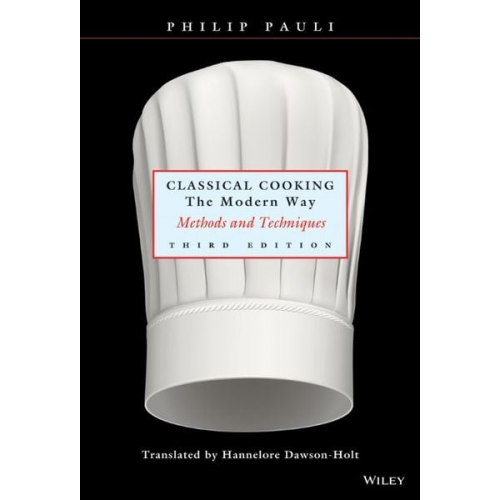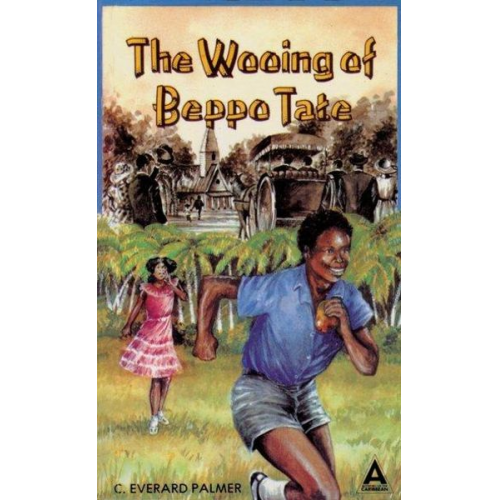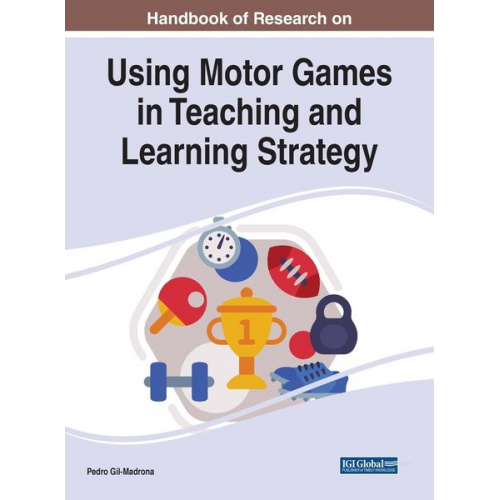
Handbook of Research on Using Motor Games in Teaching and Learning Strategy
325,99 €
Motor games are incredibly useful in enhancing education and developing critical skills; they can entertain, produce pleasant emotions, improve moods, and increase the level of relationships. Motor games allow social, emotional, and cognitive development as well as the acquisition of motor skills such as knowledge and mastery of body, postural...
Direkt bei Thalia AT bestellenProduktbeschreibung
Motor games are incredibly useful in enhancing education and developing critical skills; they can entertain, produce pleasant emotions, improve moods, and increase the level of relationships. Motor games allow social, emotional, and cognitive development as well as the acquisition of motor skills such as knowledge and mastery of body, postural control and adjustment, and improvement of coordination. However, it is essential to select the appropriate game for each context to achieve the desired learning in all students. Further research on the opportunities, challenges, and future directions of motor games in education is necessary to successfully implement them. The Handbook of Research on Using Motor Games in Teaching and Learning Strategy presents significant advances in motor game education and collects research evidence that uncovers the certainties and testifies to the educational power of motor games in various situations and specific contexts that promote the learning of participants. Covering topics such as emotional physical education and educational mediation, this major reference work is ideal for researchers, academicians, educators, practitioners, and students.
| Marke | Information Science Reference |
| EAN | 9781799896210 |
| ISBN | 978-1-79989-621-0 |
Kategorien
- « Autoreifen
- Beautywelt
-
« Bücher
-
« Schule & Lernen
- « Schulbücher
- « Lernhilfen
- « Lektüren & Interpretationen
- « Sprachen lernen
- « Berufs- & Fachschulen
- « Lexika & Wörterbücher
- « Lehrermaterialien
- Hausaufgabenhefte
- « Formelsammlungen
- Schultüten basteln
-
« Fremdsprachige Bücher
-
« Englische Bücher
- « Schule & Lernen
- « Reise & Abenteuer
- « Sach- & Fachbücher
- « Ratgeber & Freizeit
- « Kinder- & Jugendbücher
- « Klassiker
- « Romane & Erzählungen
- « Krimis & Thriller
- « Comics & Mangas
- « Preisgekrönte Bücher
- « Fantasy
-
« Nach Autoren
- Moyes, Jojo
- Alice Oseman
- Hoover, Colleen
- Sally Rooney
- Tolkien, John R. R.
- Emily Henry
- Karen M. McManus
- Grisham, John
- Matt Haig
- Ana Huang
- Mo Xiang Tong Xiu
- Ali Hazelwood
- Taylor Jenkins Reid
- Roberts, Nora
- Aaronovitch, Ben
- James, E. L.
- Collins, Suzanne
- Sparks, Nicholas
- Brown, Dan
- Flynn, Gillian
- Beckett, Simon
- Rowling, Joanne K.
- Baldacci, David
- Martin, George R. R.
- Slaughter, Karin
- Carr, Robyn
- Roth, Veronica
- Follett, Ken
- Cassandra Clare
- McDermid, Val
- Child, Lee
- Gerritsen, Tess
- Nesbo, Jo
- Todd, Anna
- Gardner, Lisa
- Preston, Douglas
- Clancy, Tom
- Phillips, Susan Elisabeth
- Adler-Olsen, Jussi
- French, Nicci
- Jackson, Lisa
- Rendell, Ruth
- Forsyth, Frederick
- Gordon, Noah
- Archer, Jeffrey
- Wiggs, Susan
- George, Elizabeth
- Carlan, Audrey
- Feehan, Christine
- Mallery, Susan
- McFadyen, Cody
- Phillips, Carly
- « Science Fiction
- « BookTok
- New Adult
- Weitere Themenbereiche
- « Besondere Ausgaben
- Barack Obamas Reading List
- Russische Bücher
- « Italienische Bücher
- « Niederländische Bücher
- « Französische Bücher
- « Spanische Bücher
- « Sonstige Sprachen
- Portugiesische Bücher
- Türkische Bücher
- « Polnische Bücher
- « Zweisprachige Lektüren
- « Ukrainische Bücher
-
« Englische Bücher
-
« Kinderbücher
- « Zweisprachige Lektüren
- « Sport
- « Nach Themen
- « Beschäftigungsbücher
- « Nach Alter
- « Sachbücher
- « Vorlesegeschichten
- « Bilderbücher
- « Beliebte Kinderbuchreihen
- « Erstlesebücher
- « Papp-Bilderbücher
- « Lieder & Reime
- « Comics
- Fantasy
- « Freundebücher
- Krimi & Spannung
- Romane & Erzählungen
- Preisgekrönte Kinderbücher
- « Romane & Erzählungen
- « Jugendbücher
-
« Krimis & Thriller
- « Nach Ländern
- « Thriller
- « Regionalkrimis
-
« Nach Autoren
- King, Stephen
- Christie, Agatha
- Brown, Sandra
- Adler-Olsen, Jussi
- Bannalec, Jean-Luc
- Gruber, Andreas
- Cornwell,Patricia
- Krist, Martin
- Reichs, Kathy
- Fitzek, Sebastian
- Franz, Andreas
- Klüpfel & Kobr
- George, Elizabeth
- Wolf, Klaus-Peter
- Neuhaus, Nele
- Schätzing, Frank
- McDermid, Val
- Gerritsen, Tess
- Beckett, Simon
- Falk, Rita
- Nesser, Hakan
- Brown, Dan
- Cosy Crime
- Mystery
- Horror
- Historische Krimis
- Humorvolle Krimis
- Preisgekrönte Krimis
- Wahre Kriminalfälle
- Gerichtsmedizin
- « Nach Emotionen
- Krimis des 20. Jhd.
- Drogen-Kriminalität
- Tierkrimis
-
« Reisen
- « Reiseführer
- « Reiseberichte
- « Atlanten & Karten
- « Bildbände
- « Wandern & Radwandern
- « Restaurant- & Hotelguides
- « Reisen mit Kindern
- Camping & Caravaning
- « Manga
- « BookTok
-
« Schule & Lernen
-
« Bürobedarf
- Individuelle Stempel
- Infotafeln, Namens-, Tür-, Infoschilder
- Zubehör Ordner
- Prospekthüllen
- Hängeregistraturzubehör
- Sonstige Hüllen
- Hängeregistratur neutral
- Register aus Kunststoff
- Register Papier, Pappe, Mylar
- Kugelschreiber
- Zubehör Planung (außer Marker, Nadeln...)
- Kunststoffordner Marken
- Sonstige Planungsmittel
- Zubehör Visitenkarten
- Buchversandkartons
- Ordnerversandkartons
- Bleistifte (Holz- u. Druckbleistifte)
- Sonderordner (Doppelo., Sonderformate)
- Sichtwender
- Trennblätter u. Trennlaschen
- Hängeregistratur farbig
- Briefkörbe
- Zubehör Kartei (Stützplatten...)
- Fineliner
- Tintenroller u. Gelroller
- Kohle- u. Durchschreibepapier
- Kunststoffordner Eigenmarken
- Hängeregistratur Eigenmarken
- Büromöbelprogramme
- Zubehör Armlehnen
- Lagerregale
- Hocker (auch Rollhocker)
- Zubehör Lagereinrichtung
- Sonstige Büroschränke Stahl
- Vorhängeschlösser
- Zubehör Rollen
- Sichtbücher, Prospektalben u. Ringmappen
- Pappordner neutral
- Prospektständer
- Garderobenständer
- Bodenputzgeräte
- Mehrzwecktische, Konferenztische
- Toilettenpapier, trocken (traditionell)
- Kleiderbügel
- Ledersessel
- Hängeregistraturschränke Stahl
- Schubladenschränke Stahl
- Schlüsselkästen
- Sonstiges EDV-Zubehör (Mouse-Pads...)
- Datenträgeraufbewahrung (Disk.boxen...)
- Spezialbeschichtetes-/Fotopapier Inkjet
- Matrix Original
- Visitenkarten weiß
- Endlospapier weiß
- Endlospapier mit Liniendruck
- Formularbücher A-Z Kohlepapier
- Formularbücher A-Z Selbstdurchschreibend
- Sonstige Blöcke
- Formularbücher A-Z einfach
- Sonstige Etiketten
- Universaletiketten weiß
- Computeretiketten
- Vielzwecketiketten
- Adressetiketten
- OHP-Folien Laser
- Batterien
- Zubehör Diktier- u. Wiedergabegeräte
- Scheren, Cutter u. Briefbesteck
- Sonstige Küchenhelfer u. -werkzeuge
- Schreib-, Konferenzmappen aus sonst. M.
- Zubehör Terminplaner
- Einweg-Gläser, -Becher, -Tassen
- Sonstige Ordnungsbehälter (Köcher...)
- Geschirr
- Bewerbungsmappen
- Spitzer, Spitzmaschinen
- Textmarker
- Pappordner Marken
- Hängeregistratur Marke
- Klemm-Mappen, Klemmschienen inkl. Hüllen
- Moderationsmarker (Flipchart- u. Boardmarker)
- Ordnungsmappen, Fächermappen
- Universalmarker (inkl. OHP)
- Heftmechaniken, Heftstreifen, Abheftsch.
- Terminplaner
- Pflaster & Verbandsmaterial
- Bürowagen
- Sonstige Einwegartikel
- Zubehör Schlüsselkästen
- Papierschreibunterlagen
- Schiebetürenschränke Stahl
- Dokumentenkassetten
- Heftklammern
- Designpapier
- Markierungspunkte
- Gutscheine u. Karten
- Briefumschläge gummiert
- Archivprodukte aus Karton inkl. B.bügel
- Briefumschläge Design u. Farbe
- Hebelschneidemaschinen
- Heftgeräte, Heftzangen, Enthefter
- Spezialmarker (Lackmarker, Dekomarker...)
- Geschäftsbücher
- Visitenkarten-Bücher, -Mappen, -Sammler
- Sonstige Spender für Hygiene
- Spendegeräte im Büro
- Tisch-Flipchart
- Laminierfolien 100 micron
- Sichthüllen
- Akkumulatoren
- Designvisitenkarten u.farbig
- Zubehör Anschießpistolen
- Diktiersysteme analog
- Präsentationsmappen u. -boxen m. Sichtt.
- Datenträger-Etiketten
- Notizbücher
- Sonstige Bürokleingeräte
- Locher (auch Doppel-, Mehrfachlocher...)
- Schirmständer
- Übrige Schreib- und Malartikel
- Sonst. Taschen (Kultur-, Hand-, Kühlt.)
- Universaletiketten wiederablösbar
- Universalpapier A3 weiß
- Kabel für Fernseher
- Haftnotizen Z-Notes
- Doppelseitige klebende Pads und Bänder
- Mülleimer
- Spendegeräte im Versand
- Verbandsschränke
- Papierhandtücher
- Belegfächer, Organizer, Schubkästen
- Inkjetpapier A4 weiß über 80g
- Arbeitsplatzorganisation
- Tafel-Flipchart
- Schubladenboxen
- Zubehör Putz- u. Reinigungsgeräte
- Wanduhren
- Küchentücher/Küchenrollen
- Ringbücher, Präsentationsringbücher
- Visitenkarten-Boxen
- Haftmarker Film einfach
- Stative
- Briefwaagen
- Spezialbeschichtetes- /Fotopapier Laser
- Besteck
- Notizzettelblöcke und -Spender
- Lagerboxen
- Faltkartons standard
- Eckspannmappen
- Aktendeckel, Sammelmappen
- Dokumentenboxen (ohne Einschubtasche)
- Speziallaminierfolien
- Visitenkarten-Etuis
- Stempelkissen
- Ordnerdrehsäulen
- Karteikästen, Boxen
- Kunststoffhefter f. gelochtes Schriftgut
- Hängeregistraturboxen (ohne Mappenboy)
- Zirkel
- Sortierstationen
- Lineale, Geodreiecke
- Stehsammler
- Versandtaschen mit Falte
- Spezial-Hängeregistraturen
- Memotafeln magnetisch (Weißwand...)
- Sonstige Registraturartikel (Lochverst.)
- Haftmarker Film Sonderausführungen
- Halter (Handtuch-, Fön-, Toilettenp.h.)
- Hängeordner
- Kartonhefter für gelochtes Schriftgut
- Radierer
- Thermo Original
- Briefumschläge selbstklebend
- Pappordner Eigenmarken
- Luftballons
- Pultordner, Vorordner
- Universaletiketten farbig
- Standardstempel
- Zubehör Stempel
- Fußstützen
- Zubehör Beschriftungsgeräte
- Zubehör Preisauszeichnung
- Geldkassetten
- Visitenkarten-Spender
- Toner Original
- Briefblöcke A4
- Collegblöcke A4
- Toner Eigenmarke
- Tinte Eigenmarke
- Universalpapier A4 weiß über 80g
- Universalpapier A4 weiß unter 80g
- Universalpapier A4 weiß 80g
- Zubehör (z.B. Einzel- und Ersatzteile)
- Kleiderspinde
- Zählbretter
- Endlospapier farbig
- OHP-Folien Inkjet
- Kopierfolien
- Pappordner vollfarbig (auch gestaltet)
- Schreib-, Konferenzmappen aus Leder
- Datenträger optisch
- Aschenbecher
- Flügeltürenschränke Stahl
- Tabletts
- Papierkörbe
- Wasserzeichenpapiere
- Telefon-Ringbücher
- Schreibunterlagen, Schreibtischsets
- Haftmarker Papier einfach
- Haftnotizen mit extra starker Klebekraft
- Haftnotizwürfel
- Haftnotizen gelb
- Sonstige Haftnotizen
- Zubehör Festnetztelefone
- Zubehör Etikettendrucker
- Sonstige Kleinmöbel
- Rollcontainer
- Tinte Original
- Polsterversandtaschen (alle Materialien)
- Preisauszeichnungsetiketten
- Zubehör Aktenvernichter (Abfalls., Öl)
- Frankieretiketten
- Schul-/Wissenschaftsrechner
- Aktentaschen u. -mappen etc. aus Leder
- Aktentaschen u. -mappen aus sonst. M.
- Wandgarderoben
- Akten- u. Pilotenkoffer aus Leder
- Sonstiges Eventmaterial
- Dokumententaschen u. Etikettenschutzfilm
- Zubehör Thermobindegeräte
- Türstopper, Schutzfilze, Zugluftstop etc.
- Nicht druckende Tischrechner
- Drehstühle
- Hubwagen
- Zubehör Rechner
- Büroregale
- Haftmarker Papier Sonderausführungen
- Karteischränke Stahl
- Tintenlöscher
- Vitrinen
- Müllsäcke
- Laminierfolien 125 micron
- Laminierfolien 75 micron
- Zubehör Drahtkammbindung
- Zubehör Kunststoffbindung
- Deckfolien u. Rückwände
- Schaukästen
- Sonstige Hygieneartikel
- Kartonversandtaschen
- Verbandkästen & Erste-Hilfe Sets
- Tinte Kompatibel
- Sonstige Formularbücher
- Briefumschläge haftklebend
- Zubehör Buchbindegeräte
- Wiedergabegeräte
- Leitern
- Laminierfolien 80 micron
- Tischleuchten
- Rollenschneidemaschinen
- Zubehör Schneidemaschinen
- Moderationswände
- Besucherstühle
- Akten- u. Pilotenkoffer aus sonstigem M.
- Buchbindegeräte
- Sonstige Zuschnitte (CD-/ DVD-Einleger)
- Trennwände
- Vielzweckklemmen
- Fensterputzgeräte
- Aktenvernichter-Streifenschnitt
- Aktenvernichter-Partikelschnitt
- Schiebetürenschränke Holz, Kunststoff
- Tresore
- Collegblöcke A5
- Notiz- u. Spiralblöcke (Kleinformate)
- Toner Kompatibel
- Versandtaschen standard haftklebend
- Versandtaschen reißfest (Tyvek o.ä.)
- Versandtaschen mit Kartonrückwand
- USB-Sticks
- Taschenrechner
- Taschenlampen/-leuchten
- Unterschriftenmappe
- Gartentische
- Transportwagen
- Haftnotizen recycling
- Preisauszeichnungsgeräte
- Laminierfolien 250 micron
- Laminierfolien 175 micron
- Handtuchspender
- Toilettenpapierspender
- Briefblöcke A5
- Staubsaugerbeutel
- sonstige Accessoires (Freizeit)
- Laminiergeräte
- Matrix Kompatibel
- Sonstige Universaletiketten
- Kanzleipapier
- Servietten
- Eintrittsbänder
- Notebooktaschen u. -koffer
- Absperrung/Leitsysteme
- Hinweisschild/Aufkleber
- Laserpapier A4 weiß über 80g
- Laserpapier A3 weiß
- Plantafeln (Jahresplaner, Projektplaner)
- Zubehör Drucker (Ohne Papier u. Ti/To)
- Zubehör Kabel
- Speicherkarten
- Sonstige Dekorationsartikel
- Kerzen
- Sonstige Versandtaschen (Freistempler...)
- Paketwaagen
- Thermo Kompatibel
- Schulhefte, Löschpapier
- Putztücher, Schwämme u. Bürsten
- Zubehör zur Kaffee- u. Teezubereitung
- Millimeterpapier
- Servierwagen
- Sonstige Geschenkverpackungen
- Umschläge, Schoner
- Verpackungsbeutel
- Stationäre Scanner (auch Tunnelscanner)
- Geldprüfgeräte
- Sonstige Kleinteile (Elastikpuffer...)
- Arbeitshandschuhe
- Kommunikations/Netzwerke u. Komponenten
- Versandtaschen standard gummiert
- Versandtaschen standard selbstklebend
- Einweg-Geschirr
- EDV- Eingabegeräte (Tastatur, Mouse...)
- Büroklammern, Aktenklammern
- Musterbeutelklammern
- Nadeln, Reißnägel, Pinnwandstifte
- Lautsprecher (als Multimediakomponenten)
- Tachographen-Aufzeichnung u. -Zubehör
- EDV-Peripherie
- Spezialhefte (Zeichen, Noten, Steno...)
- Etikettendrucker
- Zahnstocher, Rührstäbe
- Zeichen- / Malblöcke
- Krankenliegen-/transport
- Sonstige Erste-Hilfe
- Buchkalender
- Haftnotizen farbig
- Schablonen
- Universalpapier A4 recycling
- Ringbucheinlagen
- Festplatten
- Thermobindegeräte
- Winterdienst
- Steckdosenleisten
- Beschriftungsgeräte Bänder
- Kopfhörer portable
- Zubehör Beamer/Projektion
- Diktiersysteme digital
- Schreibtische
- Zubehör Fotokameras
- Sammeltaschen (Klett-, Druck- u. Reißv.)
- Kunststoff-Bindegeräte
- Thermo Eigenmarke
- Druckende Tischrechner
- Visitenkarten-Rotationskarteien
- Geschirrtücher
- Stempeluhren u. Zubehör
- Computertische
- Tageslichtprojektoren
- Sonstige Putz- u. Reinigungsgeräte
- Beschriftungsgeräte
- Ladegeräte
- Geschenkkartons,-tüten und -beutel
- Zubehör Kassen
- Geldzählmaschinen
- Sonstige Elektronische Einrichtung u. V.
- Zubehör KFZ-Navigationssysteme
- Zubehör Laminiergeäte (Lochzange...)
- Zubehör Geräte zur Datenverarbeitung
- WC-Garnitur
- Isolierkannen, -becher u. Flaschenkühler
- Drahtkamm-Bindegeräte
- Pinntafeln (Stoff, Kork...)
- Sackkarren
- Sonstiges Geschirr, Gläser, Besteck
- Werkbänke
- Wandhalterungen für Fernseher
- Brief-, Paketkästen, Zeitungsrollen
- Mikrowellen
- Zubehör Reinigungsgeräte
- Mobiltelefone
- Kosmetiktücher
- Kopfbedeckungen
- Arbeitskittel
- Überschuhe
- Wandkalender
- Schnurgebundene Telefone
- Staubsauger
- Geldbörsen, Schlüsselanhänger
- Geschenkbänder, -schleifen u. -anhänger
- Zubehör Transportgeräte u. Leitern
- Stapelschneidemaschinen
- Transparentpapier
- Sonstige Briefblöcke
- Zubehör Elektrowerkzeuge
- Farbpapier A4
- Farbpapier A3
- Handscanner (Lesestifte)
- Aktenvernichter-Stapelvernichtung
- Laufwerke (z.B. Floppydisk, Harddisk...)
- Werkstattschränke
- Sonstiges Farbpapier
- Schutzbrillen & -visiere
- Gehörschutz
- Pinsel, Farbwalzen, Baueimer
- Spannwerkzeuge (Schraubzwingen, -stock)
- Kopfschutz
- Sicherheitsschuhe/Sicherheitsstiefel
- Schrauben, Nägel, Dübel
- Rucksäcke
- Decken- u. Pendelleuchten
- Meßwerkzeuge
- Schraubwerkzeuge, Schraubendreher
- Seifenspender
- Garten- und Grünflächenpflege
- WC-Sitz
- Stehpulte
- Kombibindung (Drahtkamm u. Kunststoff)
- Bohrmaschinen, Bohrhammer, Bohrschrauber
- Handtücher
- Aluminiumkoffer
- Sonstige Klebemittel (Klebepistole...)
- Hakenleisten, Klemmleisten
- Werkstattwagen
- Universalpapier A5
- Zubehör Mobile Kommunikation
- Rauchmelder
- BluRay-Player
- Elektronische Zeiterfassungssysteme
- Anschießpistolen
- Arbeitsplatz- und Lupenleuchten
- CD-Player
- Stehleuchten
- Toilettenpapier, feucht
- Sonstige Hygienepapiere
- Briefumschläge Revelope
- Wasserkocher
- Flügeltürenschränke Holz, Kunststoff
- Softwarelösungen u. Handbücher
- Leinwände
- Fahrradständer
- Alternatives Sitzen
- Regenschirme
- Feuerlöschmittel
- Bastellkoffer & -sets
- Überwachungsanlagen u. Überwachungskam.
- sonstiges Zubehör Blumen u. Pflanzen
- Universalfernbedienungen
- Zubehör Geräte zur Datenspeicherung
- Warnjacken & -westen
- Ablagen
- Uhrenradio
- Sonstiger Bastelbedarf
- Minibackofen
- Schneidewerkzeuge + Zangen
- Schall, Akustik
- Sonstiges Zubehör
- Sonstige Sitzmöbel u. Zubehör
- Reisetaschen u. -koffer
- KFZ-Navigationssysteme
- Überspannungsschutz u. Ausfallsicherung
- Headsets
- Aufkleber (Buchstaben, Zahlen, Motive,Sticker)
- Sonstige Präsentationsmittel
- Kaffeemaschinen
- Grill
- Werkzeugkoffer/ Sortimentskasten
- Dosenöffner
- Baustellenleuchten (Stableuchten...)
- Funksteckdosen
- CD-Radio
- Sonstige Navigationssysteme
- Schnurgebundene Telefone mit Anrufb.
- EDV-Reinigungsmittel
- Sonstiges Badzubehör
- Gartenbänke
- Beamer
- Wecker
- Wetterstationen
- Flaschenöffner
- Funkgeräte
- Digital Signage Displays
- Powerbanks
- Korkenzieher
- Sonstige Collegblöcke
- Sonstige Reinigungsmittel
- Digitale Notetaker
- Gläser
- Trinkhalme
- Einweg-Besteck
- Sonstige Bodenreinigungsgeräte
- Luftschlangen
- Ventilatoren
- Badmöbelprogramme
- Papiertaschentücher
- Synthetikpapier
- Sonstige Geschäftsbücher
- Multifunktionswerkzeug (elektrisch)
- Sägen (elektrisch)
- Werkzeugakkus, Ladegeräte
- Winkelschleifer, Vibrationsschleifer
- Heißluftgeräte (elektrisch)
- Fahrradschlösser
- Personen-Waage
- Hautpflegemittel (Cremes, Duschgel)
- Papiertragetaschen
- Einmalhandschuhe
- Kompressoren inkl. Zubehör
- Heizkissen/-decken
- Nass-/Trockensauger
- Webcam
- Mundpflegemittel
- Bastelfarben
- Hand-Desinfektionsmittel
- Motorrad-Navigationssysteme
- Zählwaagen
- Universaletiketten recycling
- Großformatdrucker
- Zubehör Elektrowärme- u. Klimageräte
- Leuchten für Leuchtzwecke
- LED-Lampe
- Luftreiniger
- Sonstige Kartons (Umzugskartons...)
- Massagegeräte
- Wasser- und Gasmelder
- Toaster
- Plattenspieler
- Außenleuchten
- Handytaschen
- Kanister
- Fensterreinigungsgeräte
- Sonstiger Schulbedarf
- Sonstige Briefumschläge
- Schutzanzüge
- Monitore
- Farbpapier A4 recycling
- Bastelpapiere (Moosgummi usw.)
- Sonstige Badezimmermöbel
- Ball-Spiele
- Gesellschaftsspiele
- Flächen-Desinfektionsmittel
- Spielwelten
- Ferngesteuerte Autos
- Ferngesteuerte Hubschrauber
- Luftentfeuchter/ -befeuchter
- Kochplatte
- Freisprecheinrichtungen
- Wearables
- Schulranzen
- Schlagwerkzeuge (Hammer, Beitell...)
- Wasserspielzeug
- Schreibmaschinen
- Multifunktionsgeräte Tinte
- Kurzwaren
- Drucker Tinte
- Spezialschlösser
- Dichtmasse, Klebepistolen
- Tablet-PCs
- Datenträger magnetisch
- Sonstiges Outdoor-Spielzeug
- Autorennbahnen
- Spielzeugautos
- Betriebssysteme
- Kantinentische
- Lernspielzeug
- Anwenderprogramme (Textverarbeitung...)
- Multifunktionsgeräte Laser Color
- Gedächtnisspiele
- Schneideplotter
- Trainingsgeräte
- Puzzle
- Bodenschutzmatten
- Drucker Laser Color
- Haartrockner
- Hängewaagen
- Kaffeevollautomaten
- Zubehör DVB-T
- Zubehör Camcorder
- Taschen
- Schubladenschränke Holz, Kunststoff
- Rollenspielzeug
- Drucker Laser Mono
- TV- u. HiFi-Möbel
- Utilities/ Virenschutz
- Sonstige Uhren
- Zubehör Microsoft-Konsolen
- Smart Home
- Bankformulare
- Multifunktionsgeräte Laser Mono
- Gießkannen
- Leuchtstofflampen u. -röhren
- Kartonumreifung (Geräte u. Zubehör)
- Inkjetpapier A4 weiß 80g
- Übertöpfe
- Fahrrad-Navigationssystem
- Heizlüfter
- Notebooks
- Zubehör Tresore
- Spiel-/Sammelfiguren
- Zeitschaltuhren
- Drucker Matrix
- Farbpapier A5
- Personal Computer
- Briefmarken
- Thermodrucker, Thermotransferdrucker
- sonstige elektrische Kühlgeräte
- Malbücher
- Alarmanlagen
- Receiver
- Teppiche
- MP3-Player
- Camcorder (alle Formate)
- Raumerfrischer
- Konstruktionsspielzeug
- Schneidelineale
- Weltempfänger
- Zubehör Multifunktionsgeräte
- Fußmatten
- Fernseher-LED 30" bis 39"
- Fernseher-LED 40" bis 49"
- Halterungen für Beamer
- Zubehör Lautsprecher/Kopfhörer
- Pools
- Atemschutz
- Zubehör Sony Playstation-Konsolen
- Kabeltrommeln
- Elektrische Haarentfernungsgeräte
- Haushaltsreinigungsmittel
- Puppen
- Gummiringe u. -bänder
- Lose
- Zubehör
- Geschirrspülmittel
- Sonstige Büroschränke Holz, Kunststoff
- Waschmittel
- Schnurlose Telefone
- Hebezeuge, Saugheber
- Fernseher-LED über 50"
- Universalpapier A3 recycling
- Haftnotizen Großformate
- Sony Playstation-Konsolen
- Standgarderoben
- Autoradio-DVD
- Korrekturroller Einweg
- Nintendo-portable Konsolen
- Reisezubehör (Gepäckanhänger, Gurte...)
- Sägen
- Arbeitsoberteile (ohne Jacken & Kittel)
- Arbeitsjacken
- Kabel (z.B. Drucker-, Schnittstellenk.)
- Sonnenschutz
- Einschreiben
- Schleifwerkzeuge (Feile, Raspel, Hobel)
- KFZ-Ladekabel
- Klebestifte
- Fixier-, Abdeck- u. Kreppbänder
- Tischkalender
- Sonstige Schutzausstattung
- Korrekturroller Mehrweg
- Badvorleger
- Sonstige Elektrowärme- u. Klimageräte
- Fernseher-LED bis 26"
- Schnurlose Telefone mit Anrufbeantworter
- Pflanzenroller
- Trampoline
- Malerwerkzeuge
- Sonstige Aschenbecher
- Backöfen
- Sonstige Geräte zur Datenspeicherung
- Herd-Set
- Seifen
- Versandrohre, Versandhülsen
- Kaffee-Pad-Maschinen
- Sitzgruppe
- Gartenstühle
- Loungemöbel
- Sonnenliegen
- Bastelbänder (Bastelklebebänder)
- Packbänder PP
- Sonstige Spiele
- Gewebebänder
- Sonstige Verpackungshilfsmittel
- Standfüße für Fernseher
- Sonstiger Sonnenschutz
- Klimageräte
- sonstige Bücher
- Sonstige Arbeitsbekleidung
-
« Fahrräder
- « Fahrradteile
- « Bekleidung
-
« Fahrradzubehör
- « Fahrradbeleuchtung
- « Körbe & Fahrradtaschen
- Rucksäcke
- « Fahrradcomputer
- Autodach- und Fahrradträger
- « Fahrradschlösser
- « Fahrradpumpen
- « Trinkflaschen & -halter
- « Gepäckträger
- Klingeln & Hupen
- Kinderartikel
- Reparatur & Pflege
- Fahrradanhänger
- Kindersitze
- « Trinkflaschen & -halter, Fahrradzubehör
- Skate-Scooter
- « Klingeln & Hupen, Fahrradzubehör
- « Fahrradanhänger, Fahrradzubehör
- « Bekleidung, Bekleidung
- « Fahrräder
- « E-Bikes
-
« Gesundheit
- Apparel & Accessories, Jewelry, Watches
- Electronics
- Uncategorized
- Apparel & Accessories, Jewelry, Watch Accessories, Watch Bands
- Electronics, Electronics Accessories, Electronics Films & Shields, Screen Protectors
- Health & Beauty, Health Care, Biometric Monitors
- Health & Beauty, Health Care, Biometric Monitors, Activity Monitors
- Apparel & Accessories, Jewelry
- Health & Beauty, Health Care, Medical Alarm Systems
- Apparel & Accessories, Jewelry, Rings
- Apparel & Accessories, Jewelry, Smart Watches
- Health & Beauty, Health Care, Biometric Monitors, Blood Pressure Monitors
- Health & Beauty, Personal Care, Massage & Relaxation, Massagers, Electric Massagers
-
« Hörbuch-Downloads
- « Fremdsprachige Hörbücher
- « Krimis & Thriller
- « Romane & Erzählungen
- « Kinderhörbücher
- Kinder- & Jugendhörbücher
- « Hörspiele
- « Sachbücher & Ratgeber
- « Sprachen & Lernen
-
« Beliebte Autoren
- Carter, Chris
- Kepler, Lars
- Suter, Martin
- King, Stephen
- Brecht, Bertolt
- Gruber, Andreas
- Hirschhausen, Eckart von
- Grisham, John
- Neuhaus, Nele
- Leon, Donna
- Gabaldon, Diana
- Funke, Cornelia
- Fitzek, Sebastian
- Poznanski, Ursula
- Sparks, Nicholas
- Follett, Ken
- Archer, Jeffrey
- Allende, Isabell
- Austen, Jane
- Kerkeling, Hape
- Link, Charlotte
- von Schirach, Ferdinand
- Wolf, Klaus-Peter
- Slaughter, Karin
- Brown, Dan
- Falk, Rita
- Moers, Walter
- Kling, Marc-Uwe
- Lind, Hera
- Zeh, Juli
- Gablé, Rebecca
- Nesbo, Jo
- Boyle, TC
- Bannalec, Jean-Luc
- Beckett, Simon
- Safier, David
- Simsion, Graeme
- Moyes, Jojo
- Jonasson, Jonas
- Christie, Agatha
- Ahern, Cecelia
- « Comedy & Humor
- « Entspannung
- « Science Fiction & Fantasy
- « Beliebte Verlage
- « Biografien
-
« Beliebte Reihen für Erwachsene
- « Krimi
-
« Kinderbücher
- Die drei !!!
- Astrid Lindgren
- Die drei ??? Kids
- Conni
- Wieso? Weshalb? Warum?
- Der kleine Vampir
- Die Playmos
- TKKG Junior
- Liliane Susewind
- Nordseedetektive
- Star Wars
- Der kleine Drache Kokosnuss
- Lieselotte
- Hanni und Nanni
- Tilda Apfelkern
- Bobo Siebenschläfer
- TKKG
- LEGO® Friends
- Fünf Freunde
- Mein Lotta-Leben
- Geolino extra
- Benjamin Blümchen
- Harry Potter
- LEGO® Ninjago
- Das Sams
- TKKG Retro-Archiv
- Bob der Baumeister
- Bibi & Tina
- Eliot und Isabella
- Janoschs Figurenwelt
- Schleich - Horse Club
- Bibi Blocksberg
- Die geheime Drachenschule
- Die Schule der magischen Tiere
- Der kleine Rabe Socke
- LEGO® City
- Die Olchis
- Leo und die Abenteuermaschine
- Die Eule mit der Beule
- Rico & Oskar
- Wir Kinder aus dem Möwenweg
- Leo Lausemaus
- Lauras Stern
- Caillou
- Das kleine böse Buch
- Cry Babies
- Das wilde Pack
- Sternenschweif
- Abenteuer & Wissen
- Paw Patrol
- Legende der Wächter
- Gregs Tagebuch
- « Sciene Fiction
- « Thriller
- « Historisch
- « Sachbuch
- « Jugendbücher
- « Fantasy
- « Liebe
- « Jugendhörbücher
- Reise & Abenteuer
- « Bundles
- BookTok
- Märchen & Sagen
- « Exklusive Hörbuch-Downloads
-
« Hörbücher
- « Entspannung
- « Fremdsprachige Hörbücher
- « Romane & Erzählungen
-
« Kinder- & Jugendhörbücher
-
« Beliebte Reihen & Charaktere
- Der kleine Rabe Socke
- Conni
- Die drei ??? Kids
- Star Wars
- Der kleine Drache Kokosnuss
- Bobo Siebenschläfer
- Harry Potter
- Lotta-Leben
- Pettersson & Findus
- TKKG
- Schleich - Horse Club
- Die drei ???
- Wieso? Weshalb? Warum?
- Die Olchis
- Die Schule der magischen Tiere
- Fünf Freunde
- Was ist Was?
- Astrid Lindgren
- LEGO® Ninjago
- Die Teufelskicker
- Leo Lausemaus
- Benjamin Blümchen
- Paw Patrol
- Die Playmos
- « Nach Alter
- « Hörbuchboxen
- Fantasy
- Lern- & Sachgeschichten
- Abenteuergeschichten
- Geschichten & Lieder
- Tiergeschichten
-
« Beliebte Reihen & Charaktere
- « Hörspiele
- « Krimis & Thriller
- « Sachbücher & Ratgeber
- « Science Fiction & Fantasy
-
« Beliebte Autoren
- Lind, Hera
- Moyes, Jojo
- Heldt, Dora
- King, Stephen
- Riley, Lucinda
- Renk, Ulrike
- Suter, Martin
- Boyle, T.C.
- Bomann, Corina
- Falk, Rita
- Simsion, Graeme
- Link, Charlotte
- McFarlane, Mhairi
- Jonasson, Jonas
- Neuhaus, Nele
- Ebert, Sabine
- Cornwell, Bernard
- Lorentz, Iny
- Prange, Peter
- Austen, Jane
- Christie, Agatha
- Kling, Marc-Uwe
- Durst Benning, Petra
- Hirschhausen, Eckart von
- Kerkeling, Hape
- Zeh, Juli
- Colgan, Jenny
- Berg, Ellen
- Lunde, Maja
- Moers, Walter
- Allende, Isabel
- von Schirach, Ferdinand
- Leon, Donna
- Funke, Cornelia
- Wolf, Klaus-Peter
- Hansen, Dörte
- Archer, Jeffrey
- Stanišić, Saša
- Maurer, Jörg
- Poznanski, Ursula
- Gabaldon, Diana
- Adler-Olsen, Jussi
- « Comedy & Humor
- « Biografien & Erinnerungen
- Märchen
- Gesunde Ernährung
- « Sprachkurse & Lernhilfen
- Hörbuch-MCs
- Reise & Abenteuer
- Hörbuch-LPs
-
« JeansWelt
- Herrenmode
- Oberteile/Shirts & Tops
- Herrenmode/Jeans/Farben
- Damenmode
- Damenmode/Jeans /High Waist Jeans
- Damenmode/Marken
- Marken
- Herrenmode/Jeans/Stretchjeans/Pioneer
- Herrenmode/Jeans/Farben/Dunkelblaue Jeans
- Damenmode/Marken/mey
- Herrenmode/Jeans in Überlänge
- Herrenmode/Marken/Pioneer
- Herrenmode/Jeans/Regular Fit Jeans
- Beratung Online/Jeans
- Herrenmode/Hosen
- Damenmode/Jeans /Stretchjeans/Timezone
- Herrenmode/Sale
- Damenmode/Jeans /Stretchjeans
- Sale/Hosen
- Herrenmode/Jeans/Regular Fit Jeans/Cross
- Oberteile/Pullover
- Damenmode/Jeans /Regular Fit Jeans
- Marken/ragwear
- Jacken
- Marken/ragwear/Kleider
- Damenmode/Jeans /Stretchjeans/Schwarz
- Marken/Soquesto
- Herrenmode/Marken/Paddock's
- Herrenmode/Marken/Timezone
- Damenmode/Jeans /Stretchjeans/Stretch Jeans Größe 44
- Damenmode/Neu
- Herrenmode/Jeans/Farben/Dunkelgraue Jeans
- Damenmode/Jeans /Straight Leg Jeans/Blau
- Marken/Cross Jeanswear
- Herrenmode/Jeans/Farben/Schwarze Jeans
- Herrenmode/Jeans/Stretchjeans/Stretchjeans Slim Fit
- Herrenmode/Jeans/Straight Leg/Revils
- Herrenmode/Sale/Jeans in Überlänge
- Herrenmode/Jeans/Stretchjeans/Dunkelblau
- Herrenmode/Jeans/Straight Leg/Wrangler
- Mode 2024
- Neuheiten
- Herrenmode/Jeans/bequeme Jeans
- Damenmode/Jeans /Stretchjeans/Blau
- Damenmode/Jeans /Skinny Jeans
- Damenmode/Jeans /Stretchjeans/Dunkelblau
- Damenmode/Jeans /Stretchjeans/Cross
- Herrenmode/Marken
- Damenmode/Jeans /Stretchjeans/Skinny Stretch Jeans
- Damenmode/Hosen
- Herrenmode/Jeans/Tapered Jeans/Wrangler
- Hosen
- Damenmode/Jeans /Slim Fit Jeans/Blau
- Damenmode/Jeans /Regular Fit Jeans/Blau
- Damenmode/Hosen/Sommerhosen
- Damenmode/Jeans /Stretchjeans/Stretch Jeans Größe 48
- Damenmode/Jacken
- Marken/FreeQuent
- Herrenmode/Jeans/Stretchjeans
- Herrenmode/Marken/Mustang
- Herrenmode/Jeans/Stretchjeans/Cross
- Herrenmode/Jeans/Tapered Jeans/Schwarz
- Herrenmode/Jeans/Tapered Jeans/Cross
- Damenmode/Marken/einfach Schön
- Oberteile/Blusen & Tuniken
- Damenmode/Marken/Cross
- Damenmode/Jeans /Regular Fit Jeans/Regular Fit Jeans Größe 46
- Oberteile/Langarm-Shirts
- Damenmode/Marken/Paddock's
- Damenmode/Marken/Red Button
- Herrenmode/Marken/questo
- Damenmode/Jeans /Slim Fit Jeans/Slim Fit Skinny Jeans
- Damenmode/Oberteile
- Herrenmode/Jeans/Slim Fit Jeans/Grau
- Marken/Tom Tailor
- Sale/Unterwäsche
- Damenmode/Jeans /Slim Fit Jeans/Hellblau
- Damenmode/Kleider & Röcke/Kleider Kurzarm
- Modemarken
- Accessoires
- Damenmode/Jeans /Stretchjeans/Grau
- Damenmode/Jeans /Stretchjeans/Paddock's
- Kleider & Röcke/Midikleider
- Damenmode/Langgrößen
- Damenmode/Accessoires/Einkaufsbeutel
- « Küchenhelfer
- Notfallradios
- « Spielwaren
-
« Spielzeug
- « Nach Alter
- « Spiele
- « Puzzle & Legespiele
-
« Beliebte Marken
- « Ravensburger
- « Siku
- « Brio
- « Kosmos
- Goki
- HAMA
- « Corvus
- Moses
- « Asmodee
- « LEGO
- HABA
- « small foot
- « Schleich
- « Pegasus
- Schmidt Spiele
- « Barbie
- « Hasbro
- « tiger®
- Spin Master
-
« Playmobil
- PLAYMOBIL® 3-5 Jahre
- PLAYMOBIL® 8-10 Jahre
- PLAYMOBIL® 6-8 Jahre
- PLAYMOBIL® 5-6 Jahre
- PLAYMOBIL® Special Plus
- PLAYMOBIL® My Life
- PLAYMOBIL® Country
- PLAYMOBIL® Novelmore
- PLAYMOBIL® Figures
- PLAYMOBIL® 1-3 Jahre
- PLAYMOBIL® Junior
- PLAYMOBIL® Horses of Waterfall
- PLAYMOBIL® Stuntshow
- PLAYMOBIL® Princess
- PLAYMOBIL® Pirates
- PLAYMOBIL® City Action
- PLAYMOBIL® Magic
- PLAYMOBIL® Dinos
- PLAYMOBIL® Asterix
- « Tonies
- « GraviTrax
- « Zapf Creation
- « Tiptoi
- Disney
- Mattel
- « DENKRIESEN
- Schipper
- Carrera
- Bullyland
- iDventure
- ZURU
- « MGA Entertainment
- Funko
- Vtech
- Panini
- Bruder
- Theo Klein
- « Lernen & Experimentieren
- « Kreativ & Basteln
- « Outdoor & Sport
- « Baby & Kleinkind
- « Figuren & Puppen
- « Rollenspiele & Verkleiden
- « Spielwelten & Figuren
- « Musizieren & Hören
- « Fahrzeuge & Rennbahnen
- « Bauen & Konstruieren
- « Kuscheltiere
- « Beliebte Kinderfiguren
- « Modelleisenbahn
- Holzspielzeug
- Draußen spielen
- « Babywelt
- « Tiernahrung
-
« Uhren & Schmuck
-
« Schmuck
- « Allaxo
- « Boccia
- « Joop
- « Morellato
- « s.Oliver
- « Tommy Hilfiger
- « Viventy
- « Merii
- « trendor
- « Pandora
- « Xen
- « Josh
- « Paul Hewitt
- « Thomas Sabo
- « Sif Jakobs Jewellery
- « IUN Silver Couture
- « Xenox
- « Lott Gioielli
- « Julie Julsen
- « DKNY
- « Coeur de Lion
- « P D Paola
- « Save Brave
- « Herzengel
- « Maserati
- « Ti Sento
- « Acalee
- « Elaine Firenze
- « BOSS
- « Michael Kors
- « Leonardo
- « Engelsrufer
- « Guess
- « Police
- « Philipp Plein
- « Blush
- « Liebeskind Berlin
- « Hot Diamonds
- « Purelei
- « Estella Bartlett
- « Lotus
- « Seinerzeit
- « Rebel and Rose
- « Lacoste
- « Fossil
- « Victoria Cruz
- « Calvin Klein
- « caï
- « Jacques Lemans
- « GLIZZ
- « Jette
-
« Uhren
- « Casio
- « Citizen
- « Jacques Lemans
- « Junghans
- « Regent
- « Seiko
- « trendor
- « Estura
- « Master Time
- « Mido
- « KHS
- « ETT
- « Sternglas
- « Maserati
- « Kerbholz
- « Tissot
- « Police
- « Zeppelin
- « Hamilton
- « Luminox
- « Certina
- « Bulova
- « Philipp Plein
- « Poljot International
- « Boccia
- « Bauhaus
- « Guess
- « Vostok Europe
- « Messerschmitt
- « Festina
- « Ice-Watch
- « Mondaine
- « Ruhla
- « Lotus
- « Withings
- « Coeur de Lion
- « Sector
- « Jacob Jensen
- « Lacoste
- « Michael Kors
- « Fossil
- « Tommy Hilfiger
- « Calvin Klein
- « Glock
- « Calypso
- « Accessoires
- « Großuhren
-
« Schmuck
-
« Verpackungen
-
« Verpackungsmaterial
- « Stretchfolien
- « Kartons
- « Klebebänder
- « Versandtaschen
- « Folien
-
« Beutel
- Papier-Faltenbeutel
- Abreißbeutel geblockt
- Druckverschlussbeutel
- « Adhäsionsverschlussbeutel
- Flachbeutel
- Kordelzugbeutel
- Schiebeverschlussbeutel
- Schnellbinder
- Verschlussmaschinen
- Schweißgeräte
- « Standbodenbeutel
- « Schnellverschlussbeutel
- Flachbeutel Vlies
- Vakuumbeutel
- « Blockbodenbeutel
- Kreuzbodenbeutel mit Siegelnaht
- Beutelverschlüsse
- Flachbeutel mit Siegelnaht
- Seitenfaltenbeutel
- Bodenbeutel PP
- Quad Bags
- Flachbeutel HDPE
- Papier-Flachbeutel
- Kreuzbodenbeutel Papier
- Kreuzbodenbeutel klar
- Seitenfaltenbeutel m. Siegelnaht
- « Dokumententaschen
- « Säcke
- « Luftpolsterfolie
- Wellpappe
- « Packpapier
- « Umreifungsbänder
- « Verpackungschips
- « Kantenschutz
- « Luftpolstertaschen
- Schaumfolie
- Luftpolsterkissen
- Schützen und Polstern
- « ColomPac
- Schneiden und Cutten
-
« Gastrobedarf
- « Beutel und Säcke
- « Bäckerei-Konditorei
- « Gastroverpackungen
- « Gedeckter Tisch
-
« Einweggeschirr
- « Feinkostbecher
- « Trinkbecher
- « Heißgetränkebecher
- Pappteller
- Gläser
- Pappschalen
- Pappbecher
- « Deckel
- Besteck
- Cateringplatten
- « Smoothies
- « Grillschalen
- « Alu-Geschirr
- « Thermoschalen
- Mikrowellengeschirr
- Schaschlikspieße und Holzstäbe
- Fingerfood
- « BIO-Einweggeschirr
- « Suppenteller
- Eisbecher
- Gourmet Box
- Thermobecher
- « Trinkhalme
- Kunststoffschalen
- Manschetten für Becher
- Eierverpackungen
- « Mehrwegverpackungen
- Thermo-Bonrollen
- Siegelgerät und Zubehör
- Speisekarten
- Kreidetafeln
- Tischkartenhalter
- Hinweisschilder
- Leitsystem
- Kinder-Gastro-Zubehör
- « Betriebsausstattung
- « Haushalt
-
« Büroartikel
- « Organisation
- Etiketten
- « Klebebänder
- Scheren und Cutter
- « Laminieren und Zubehör
- « Binden und Zubehör
- « Heften und Lochen
- Geldkassetten
- « Archivieren
- Klebemittel
- Spitzmaschinen
- Schreibtischsets
- Briefumschläge
- Aktenvernichter
- « Archivsysteme
- Büropapier
- « Umzugsbedarf
- « Hygiene
-
« Verpackungsmaterial
